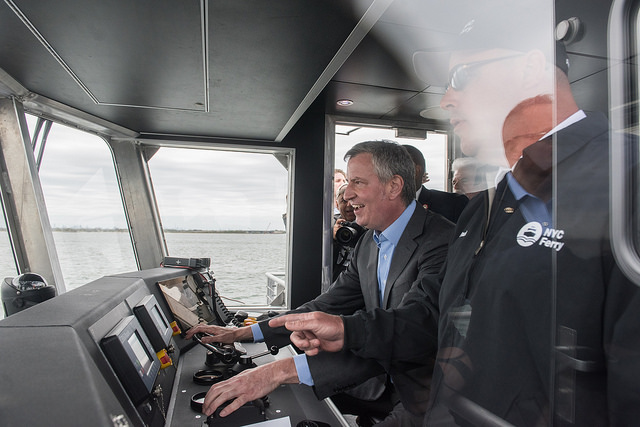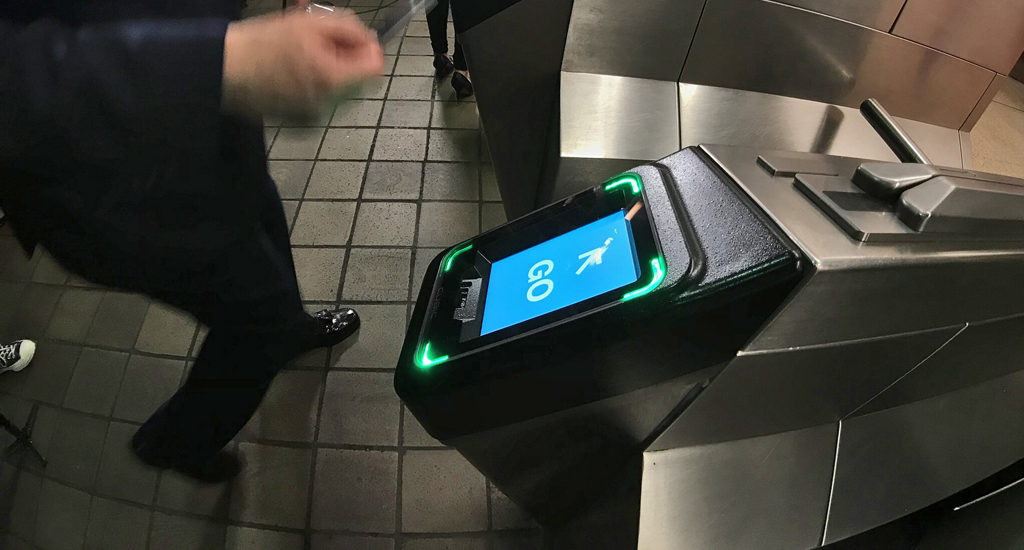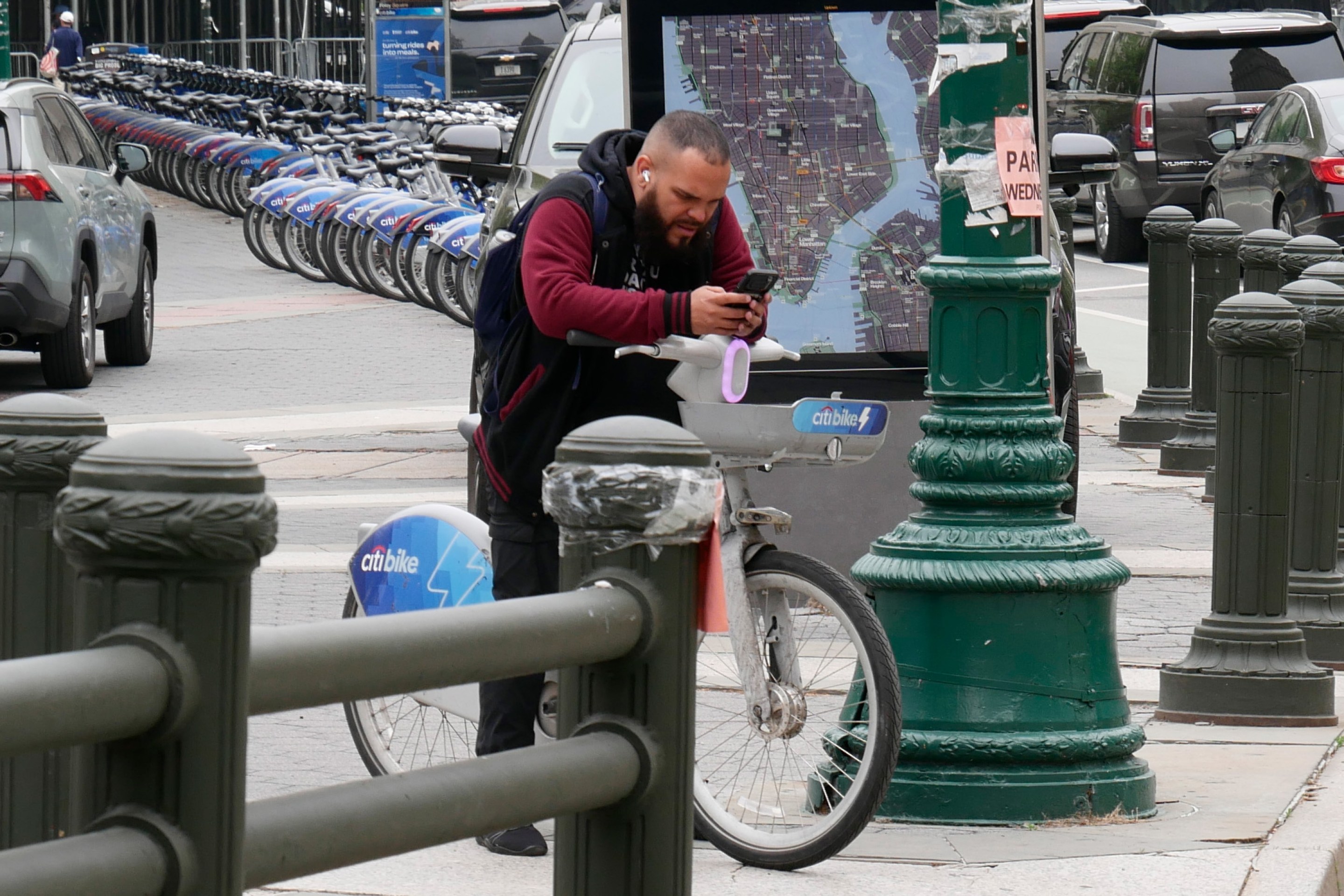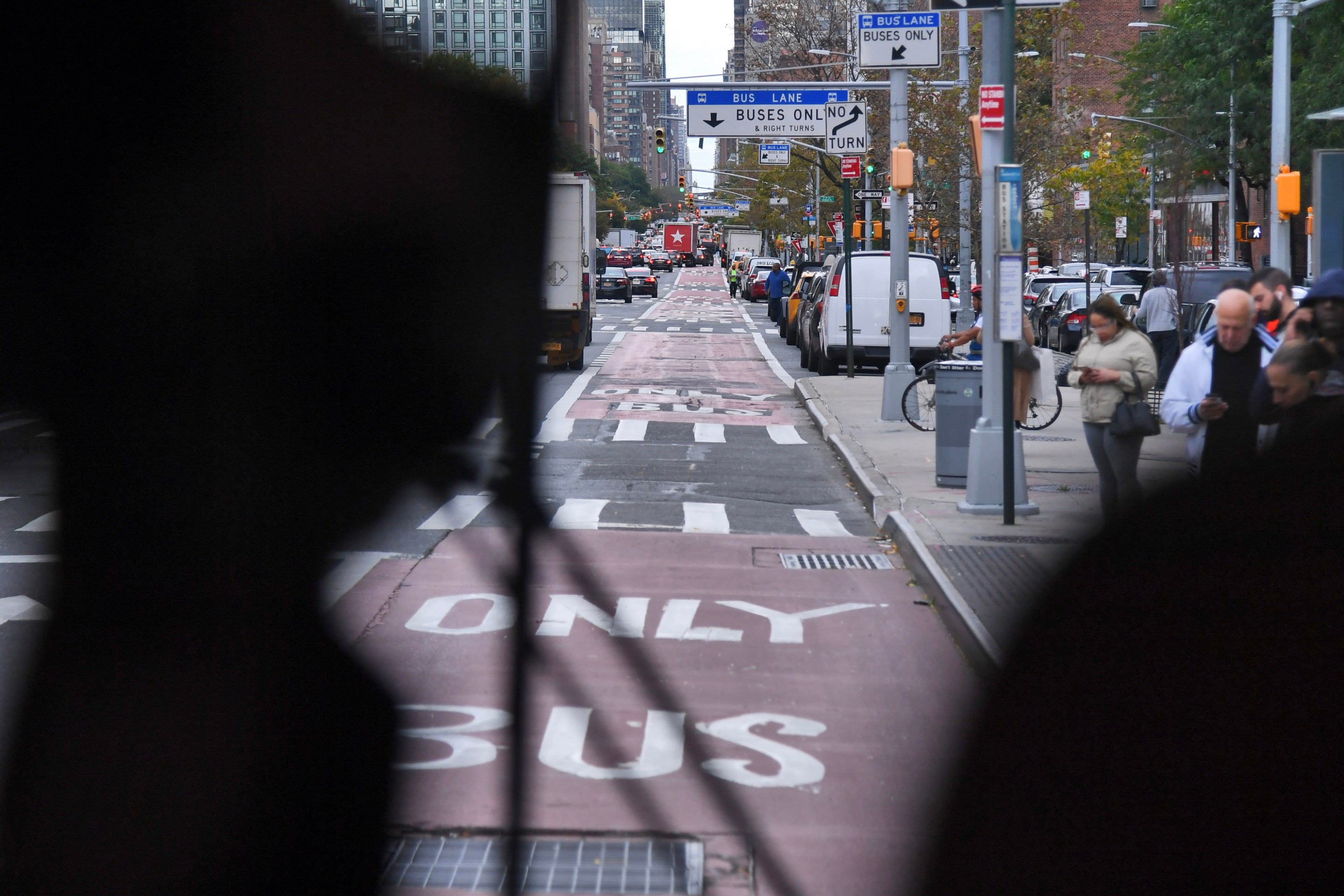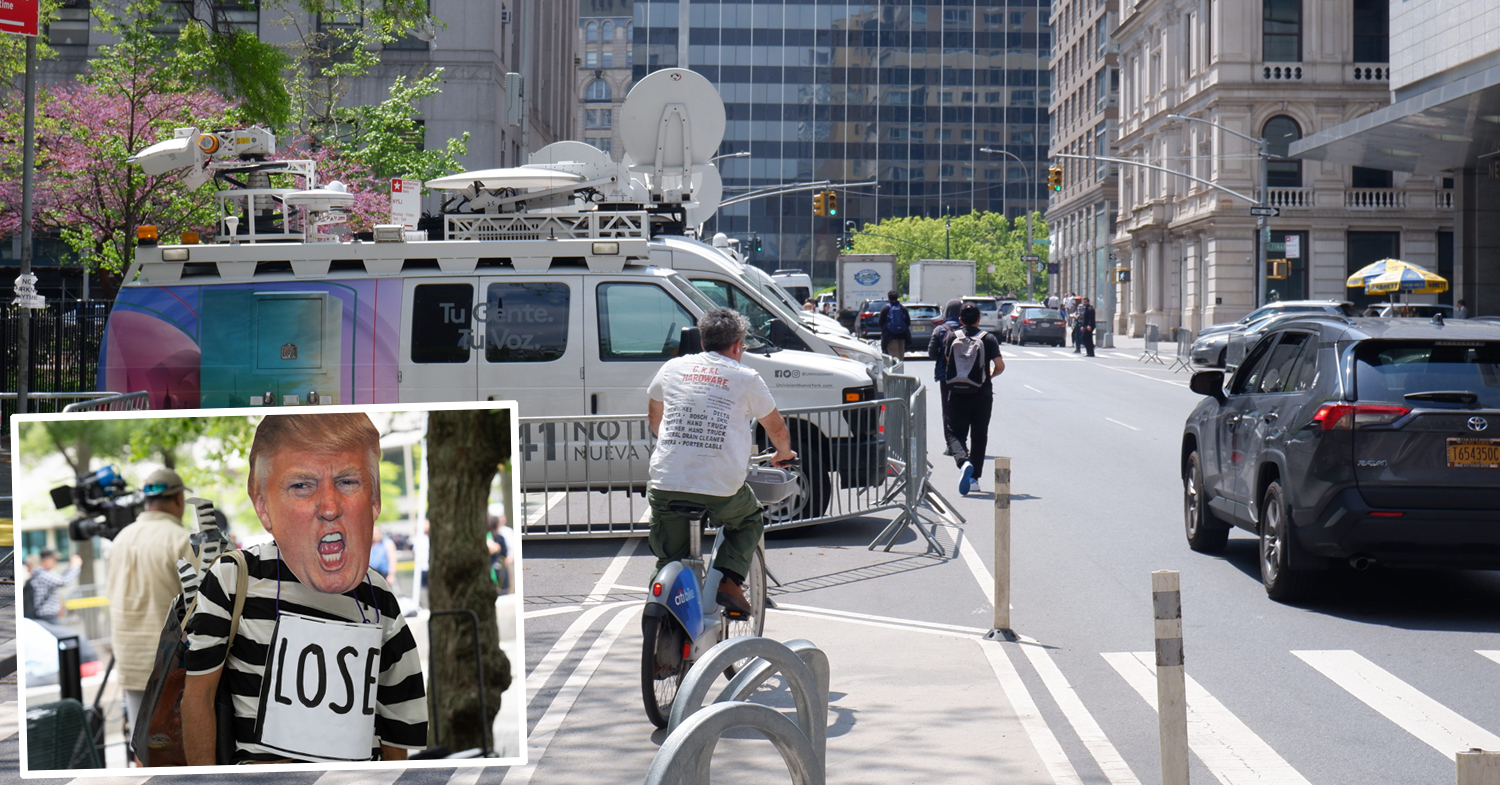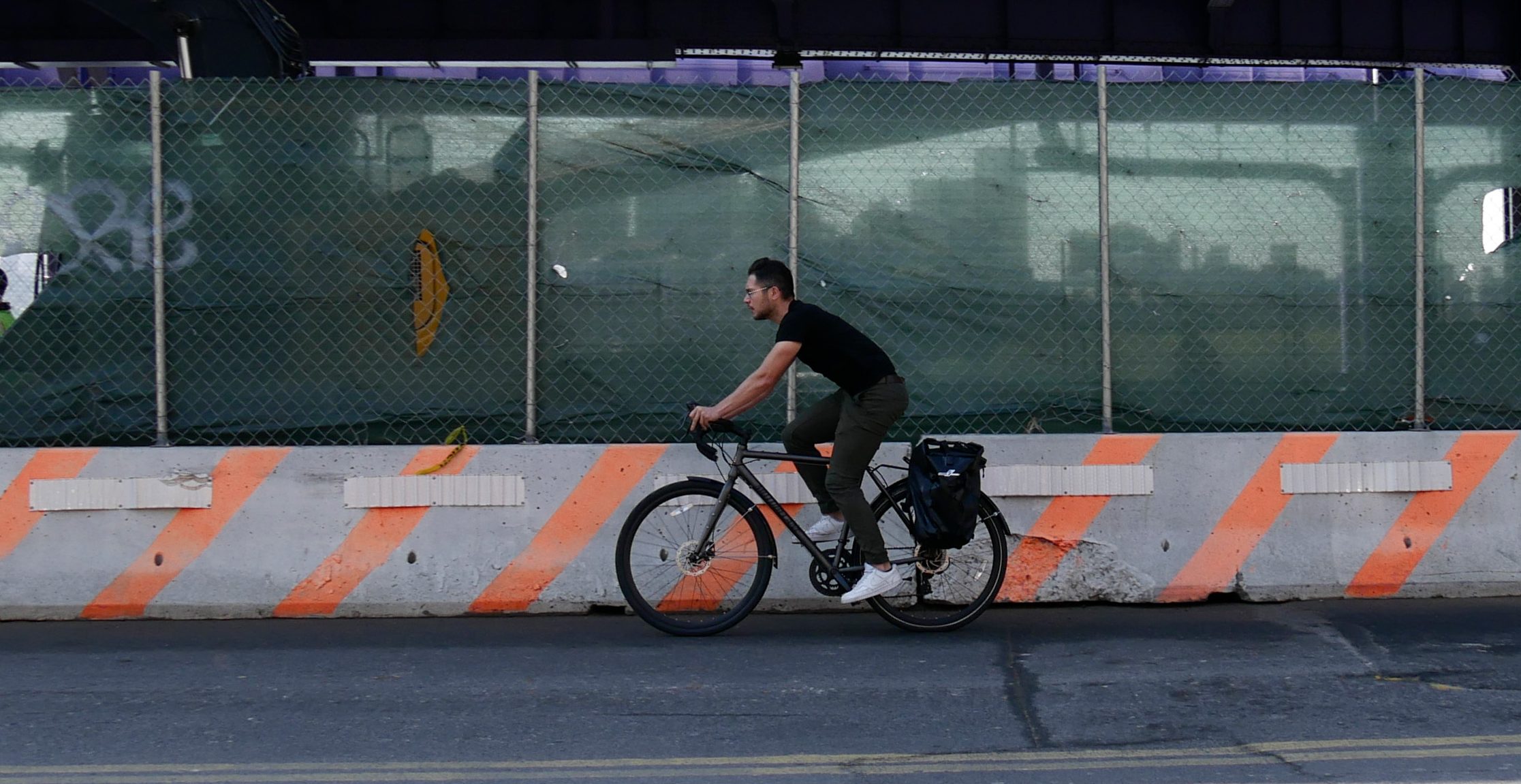Mayor de Blasio's citywide ferry service launched its first two routes today, with more set to start in the coming months.
"I often talked about the tale of two cities, well here's an example of a tale of two cities that for too long was tolerated: the Rockaways weren't as connected as they deserved to be, it's as simple as that," the mayor said yesterday at a ceremonial first ride in Rockaway Beach.
The city has budgeted $325 million over six years to launch and operate the ferries, which de Blasio has billed as an "affordable" addition to the city's transportation network. The new service will stop at various locations along the East River, and yesterday the mayor emphasized that the prices for single ferry rides and monthly passes are equivalent to those of single-ride and monthly MetroCards.
But ferry riders hoping to connect to other points in the city will have to pay twice -- for the boat ride, and then again for the subway or bus. And most stops are in neighborhoods where the annual income is above the citywide average. While the ferries can help out on the margins, they're fundamentally limited (how often do you make a trip that starts and ends near the water?) and will never move large numbers of people.
One person whom the ferries won't help is Monica Martinez, a Riders Alliance member from the Bronx profiled today in the Village Voice. Martinez is one of the 800,000 New Yorkers who would benefit from a proposal to provide half-priced MetroCards to New Yorkers living below the federal poverty line.
She describes having to pass up on food, holiday celebrations, and more in order to save money for fares: "There’s so many things we don’t do because we can’t afford it, or there’s so many things that we don’t have because we always have to put the rent, the cable, the MetroCard, first."
At full enrollment, the Fair Fares program would cost the city $212 million each year, according to advocates. The City Council recently proposed a smaller, "pilot" version budgeted at $50 million annually. The benefits in the form of increased mobility, lower rates of fare evasion arrests, and more income in the pockets of people who need it most, would be substantial.
Despite having campaigned on addressing the city's affordability crisis, the mayor told reporters last week that the Fair Fares proposal is not "strategically important" enough to receive city funding, and that subsidized transit as a social service falls under the jurisdiction of the MTA, not the city.
But de Blasio has promoted initiatives like citywide ferry service and the proposed Brooklyn-Queens streetcar, which would also require city operating subsidies, in terms that are similar to the benefits Fair Fares would confer -- as ways to expand access to affordable transportation for more New Yorkers.
The MTA may not be under de Blasio's direct control, but for a mayor who ran on a platform of reducing economic inequality, that seems like a small obstacle to overcome relative to the huge impact Fair Fares would have.
